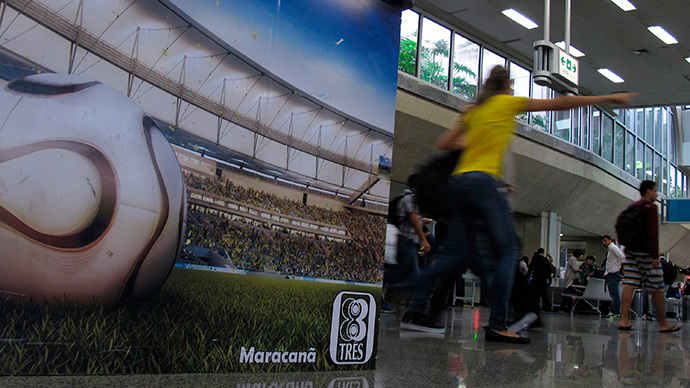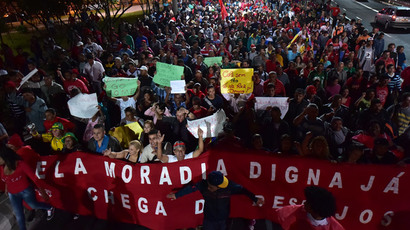Rio's airport workers go on strike on the eve of World Cup opening

Workers at Rio de Janeiro's three airports have declared a 24-hour strike, asking for a pay raise ahead of the World Cup opening ceremony scheduled for Thursday, unions said.
The strike will be partial, as a labor court ordered the unions to maintain 80 percent service or be faced with a fine of up to US$22,400.
Workers are looking for at least a 5.6 percent raise to their wages.
Despite reassurances, the strike will put pressure on Brazil on Thursday as Rio’s airports are set to receive thousands of football fans.
The two major airports to be affected by the strike include Rio’s Galeao International Airport, expected to be one of the country’s busiest during the tournament, and Santos Dumont Airport, which is responsible for domestic flights – including to Sao Paulo, which will host the opening ceremony and the opening match.
Meanwhile on Wednesday, the majority of Sao Paulo subway workers voted not to strike on the day of the opening, despite a previous threat to do so.

Brazil has been faced with protests ahead of the World Cup, with workers demanding better conditions. The city of Sao Paulo was hit the hardest; it was rocked by almost a full week of protests staged by subway workers, with police firing tear gas at rioters.
The transport union is demanding a 12.2 percent salary increase, with the company running the subway network offering only 8.8 percent.
A court order issued over the weekend instructing workers to return to their posts has been defied by the strike's organizers, who say they will continue gathering until their demands are met.
Last week, a closure of Sao Paulo’s underground system created more than 125 miles of traffic jams, paralyzing traffic in the city of more than 11 million people.
In another effort to minimize the chances of protests during the World Cup, the Brazilian government announced that it will meet the demands of homeless rights group Trabalhadores Sem-Teto (MTST).
The organization staged mass protests last week in Sao Paulo, decrying massive government spending on the World Cup at the expense of Brazil’s homeless. To placate demonstrators, Sao Paulo’s government has agreed to construct 2,000 public housing units in the east of the city and has agreed to create a committee to combat forced evictions.













